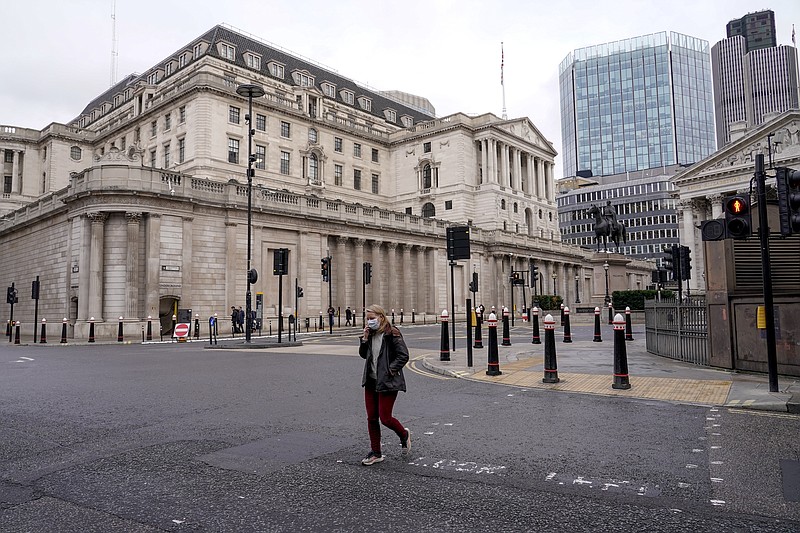LONDON -- Consumer prices in the United Kingdom are rising at their highest rate in over a decade as a result of soaring energy costs and blockages in the supply chain, official figures showed Wednesday -- a day before a highly anticipated interest rate decision from the Bank of England.
The Office for National Statistics found that inflation rose by 5.1% in the year to November, up dramatically from October's 4.2% with widespread surging prices across a raft of goods and services, including for fuel, energy, cars, clothing and food.
Prices for motor fuels were the biggest factor pushing the consumer prices index higher, the Office for National Statistics said. The average gasoline price in Britain last month -- about $7.30 per gallon was the highest on record since 1990, the agency said.
The increase was more than the 4.8% consensus of economists' forecasts and takes inflation to its highest level since September 2011. Around the world, countries are recording multiyear high levels of inflation.
The United States saw its inflation rate spike to 6.8% in the year to November, the highest level in nearly 40 years. In the 19 countries that use the euro currency, the rate hit 4.9%, the highest since recordkeeping began in 1997.
The main trigger has been the jagged reawakening of economies that were largely shut down during the pandemic lockdowns during parts of 2020-21. The surge in activity has caused supply-chain problems, hampered further by labor shortages, as well as shortages of oil and natural gas.
The latest spike in the U.K. is likely to ramp up pressure on the central bank to raise interest rates today, with inflation running at more than double the bank's target of 2%.
Economists are split as to whether there will be a majority among the bank's nine-member Monetary Policy Committee to raise the benchmark rate from a record low of 0.1%. If it were to do so, it would be the first central bank within the Group of Seven industrial economies to raise borrowing rates since the coronavirus pandemic began nearly two years ago.
Two members backed a rate increase to 0.25% at the last meeting in early November and it would take another three to join. But the recent emergence and spread of the omicron variant of the coronavirus has increased speculation that the panel will wait.
"The quick ascent" of inflation will not panic the Bank of England into raising interest rates this week, Samuel Tombs, an economist at Pantheon Macroeconomics, wrote in a note to clients, because "the full extent of the economic damage wrought by omicron is still unknown."
With infections widely anticipated to hit levels not seen before during the pandemic and new restrictions imposed, there are worries over the already muted economic recovery in the U.K.
"Inflation is close to being further above the target than at any point since Britain started targeting inflation in October 1992," said Paul Dales, chief U.K. economist at Capital Economics. "This makes tomorrow's interest rate decision look closer, but on balance we think the Bank of England is more likely to keep rates at 0.1% until it learns more about the omicron situation."
An interest rate increase, however modest, would increase many loans and mortgages.
Information for this article was contributed by Kevin Granville of The New York Times.
